- Home
- Mario Puzo
The Fourth K Page 18
The Fourth K Read online
Page 18
Her Secret Service guard had to pay the price. Originally the chief of her security detail thought her morning run would be no problem. After all, his men were good physical specimens. But Vice President Du Pray not only took her runs early in the morning through woods where guards could not follow, but her once-a-week ten-mile run left her security men straggling far to her rear. The chief was amazed that this woman, in her fifties, could run so fast. And so long.
The Vice President did not want her run disturbed; it was, after all, a sacred thing in her life. It had replaced “fun,” meaning it had replaced the enjoyment of food, liquor and sex, the warmth and tenderness that had gone out of her life when her husband had died six years before.
She had lengthened her runs and put aside all thoughts of remarrying; she was too far up the political ladder to risk allying herself to a man who might be a booby trap, with secret skeletons in his closet to drag her down. Her two daughters and an active social life were enough, and she had many friends, male and female.
She had won the support of the feminist groups of the country not with the usual empty political blandishments but with a cool intelligence and a steadfast integrity. She had mounted an unrelenting attack on the antiabortionists and had crucified in debate those male chauvinists who without personal risk tried to legislate what women might do with their bodies. She had won that fight and in the process climbed high up the political ladder.
From a lifetime of experience she disdained the theories that men and women should be more alike; she celebrated their differences. The difference was valuable in a moral sense, as a variation in music is valuable, as a variation in gods is valuable. Oh, yes, there was a difference. She had learned from her political life, from her years as a district attorney, that women were better than men in the most important things in life. And she had the statistics to prove it. Men committed far more murders, robbed more banks, perjured themselves more, betrayed their friends and loved ones more. As public officials they were far more corrupt, as believers in God they were far more cruel, as lovers they were far more selfish, in all fields they exercised power far more ruthlessly. Men were far more likely to destroy the world with war because they feared death so much more than women. But all this aside, she had no quarrel with men.
On this Wednesday, Helen Du Pray started running from her chauffeured car parked in the woods of a Washington suburb. Running from the fateful document waiting on her desk. The Secret Service men spread out, one ahead, another behind, two on the flanks, all at least twenty paces from her. There had been a time when she had delighted in making them sweat to keep up. After all, they were fully clothed while she was in running gear, and they were loaded with guns, ammo and communications equipment. They had a rough time until the chief of security detail, losing patience, recruited champion runners from small colleges, and that had chastened Du Pray a bit.
The higher she rose on the political ladder, the earlier in the morning she got up to run. Her greatest pleasure was when one of her daughters ran with her. It also made for great photos in the media. Everything counted.
Vice President Helen Du Pray had overcome many handicaps to achieve such high office. Obviously, the first was being a woman, and then, not so obviously, being beautiful. Beauty often aroused hostility in both sexes. She overcame this hostility with her intelligence, her modesty and an ingrained sense of morality. She also had her fair share of cunning. It was a commonplace in American politics that the electorate preferred handsome males and ugly females as candidates for office. So Helen Du Pray had transformed a seductive beauty into the stern handsomeness of a Joan of Arc. She wore her silver-blond hair close cropped, she kept her body lean and boyish, she camouflaged her breasts with tailored suits. For armor she wore a string of pearls and on her fingers only her gold wedding ring. A scarf, a frilly blouse, sometimes gloves, were her badges of womanhood. She projected an image of stern femininity until she smiled or laughed and then her sexuality flashed out brilliant as lightning. She was feminine without being flirtatious; she was strong without a hint of masculinity. She was, in short, the very model for the first woman President of the United States. Which she must become if she signed the declaration on her desk.
Now she was in the final stage of her run, emerging from the woods and onto a road where another car was waiting. Her detail of Secret Service men closed in and she was on her way to the Vice President’s mansion. After showering she dressed in her “working” clothes, a severely cut skirt and jacket, and left for her office—and the waiting declaration.
It was strange, she thought. She had fought all her life to escape the trap of a single-funneled life. She had been a brilliant lawyer while rearing two children; she had pursued a political career while happily and faithfully married. She had been a partner in a powerful law firm, then a congress-woman, then a senator and all the time a devoted and caring mother. She had managed her life impeccably only to wind up as another kind of housewife, namely, the Vice President of the United States.
As Vice President she had to tidy up after her political ‘husband,’ the President, and perform his menial tasks. She received leaders of small nations, served on powerless committees with high-sounding titles, accepted condescending briefings, gave advice that was accepted with courtesy but not given truly respectful consideration. She had to parrot the opinions and support the policies of her political husband.
She admired President Francis Xavier Kennedy and was grateful that he had selected her to be on the ticket with him as Vice President, but she differed with him on many things. She was sometimes amused that as a married woman she had escaped being trapped as an unequal partner, yet now in the highest political office ever achieved by an American woman, political laws made her subservient to a political husband.
But today she could become a political widow and she certainly could not complain about her insurance policy, the presidency of the United States of America. After all, this had become an unhappy “marriage.” Francis Kennedy had moved too quickly, too aggressively. Helen Du Pray had begun fantasizing about his “death,” as many unhappy wives do.
By signing this declaration she could get all the loot. She could take his place. For a lesser woman this would have been a miraculous delight.
She knew it was impossible to control the exercises of the brain, so she did not really feel guilty about her fantasies, but she might feel guilty about a reality she had helped to bring about. When rumors floated that Kennedy would not run for a second term, she had alerted her political network. Kennedy had then given his blessing. This was all changed.
Now she had to clear her mind. The declaration, the petition, had already been signed by most of the Cabinet, the Secretaries of State, Defense, Treasury and others. CIA was missing, that clever, unscrupulous bastard Tappey. And of course, Christian Klee, a man she detested. But she had to make up her mind according to her judgment and her conscience. She had to act for the public good, not out of her own ambition.
Could she sign, commit an act of personal betrayal and keep her self-respect? But what was personal was extraneous. Consider only the facts.
Like Christian Klee and many others, she had noted the change in Kennedy after his wife died just before his election to the presidency. The loss of energy. Helen Du Pray knew, as everyone knew, that to make the presidency work you could lead only by building a consensus with the legislative branch. You had to court and cajole and maybe give a few kicks. You had to outflank, infiltrate and seduce the bureaucracy. You had to have the Cabinet under your thumb, and your personal senior staff had to be a band of Attilas and a gaggle of Solomons. You had to haggle, you had to reward and you had to throw a few thunderbolts. In some way you had to make everyone say, “Yes, for the good of the country and the good of me.”
Not doing these things had been a fault in Kennedy as President; also he was too far ahead of his time. His staff should have known better. A man as intelligent as Kennedy should have known better. And yet she
sensed in Kennedy’s moves a kind of moral desperation, an all-out gamble on good against evil.
She believed, and hoped, she was not regressing into an outmoded female sentimentality, that the death of Kennedy’s wife was the root of the drift of his administration. But did extraordinary men like Kennedy fall apart merely because of some personal tragedy? The answer to that was yes.
She herself had been born to politics but she had always thought that Kennedy himself had not the temperament. He was more a scholar, scientist, teacher. He had too much idealism; he was, in the best sense of the word, naïve. That is, he was trusting.
The Congress, both houses, had waged brutal war against the executive branch, and usually won the war. Well, it would not happen to her.
Now she picked up the declaration from her desk and analyzed it. The case presented was that Francis Xavier Kennedy was no longer capable of exercising the duties of President because of a temporary mental breakdown. Caused by the murder of his daughter. Which now affected his judgment, so that his decision to destroy the city of Dak and threaten to destroy a sovereign nation became an irrational act, far out of proportion to the degree of provocation, a dangerous precedent that must turn world opinion against the United States.
But then there was Kennedy’s argument, which he had presented at the staff and Cabinet conference: This was an international conspiracy in which the Pope of the Catholic Church had been assassinated and the daughter of the President of the United States murdered. A number of hostages were still being held and the conspiracy could spin out the situation for weeks or even months. And the United States would have to set the killer of the Pope free. What an enormous loss of authority to the most powerful nation on earth, the leader of democracy and, of course, democratic capitalism.
So who was to say that the Draconian answer proposed by the President was not the correct answer? Certainly, if Kennedy was not bluffing, his measures would succeed. The Sultan of Sherhaben must go down on his knees. What were the real values here?
Point: Kennedy had made his decision without proper discussion with his Cabinet, his staff, the leaders of Congress. That was very grave. That indicated danger. A gang leader ordering a vendetta.
He had known they would all be against him. He was convinced he was right. Time was short. This was the decisiveness Francis Kennedy had shown even in the years before he became President.
Point: He had acted within the powers of the chief executive. His decision was legal. The declaration to impeach Kennedy had not been signed by any member of his personal staff, those people closest to him. Therefore the charge of unfitness and mental instability was a matter of opinion that rested on the decision he had made. Therefore, this declaration to impeach was an illegal attempt to circumvent the power resting in the executive branch of the government. The Congress disagreed with the presidential decision and therefore was attempting to reverse his decision by removing him. Clearly in violation of the Constitution.
Those were the moral and legal issues. Now she had to decide what was in her own best interests. That was not unreasonable in a politician.
She knew the mechanics. The Cabinet had signed, so now if she signed this declaration she would be the President of the United States. Then Kennedy would sign his declaration and she would be Vice President again. Then Congress would meet and in a two-thirds vote impeach Kennedy and she would be the President for at least thirty days, until the crisis was over.
The plus factor: She would be the first woman President of the United States for a few moments, at the very least. Maybe for the rest of Kennedy’s term, which would end the following January. But she should have no illusions. She would never get the nomination after the term ran out.
She would achieve the presidency by what some would see as an act of betrayal—by a woman. It was enough that the literature of civilization had always portrayed women as causing the downfall of great men, that there was the ever-present myth that men could never trust women. She would be regarded as “unfaithful”: that great sin of womankind which men never forgave. And she would be betraying the great national myth of the Kennedys. She would be another Modred.
Then it struck her. She smiled as she realized that she was in a “no lose” situation. Just by refusing to sign the declaration.
Congress would not be denied.
Congress, possibly acting illegally without her signature, would impeach Kennedy, and the Constitution decreed that she would succeed to the presidency. But she would have proved her “faithfulness,” and if and when Francis Kennedy was restored after thirty days, she would still have his support. She would still have the Kennedy power group behind her nomination. As for the Congress, they were her enemies no matter what she did. So why be their political Jezebel? Their Delilah?
It became clearer and clearer to her. If she signed the declaration, the voting public would never forgive her and the politicians would hold her in contempt. And then, when and if she became President, they would most likely try to demean her also. They would, she thought, probably blame her deficiencies on her menstrual flow, the cruel male expression would be the inspiration for comics all over the country.
She made her decision. She would not sign the declaration. That would show she was not greedily ambitious, that she was loyal.
She started writing the statement she would give to her administrative aide to prepare. In it she simply wrote that she could not sign, with a clear conscience, a document that would elevate her to such high power. That she would remain neutral in this struggle. But even this could be dangerous. She crumpled up the paper. She would just refuse to sign; Congress would carry it forward from there. She placed a call to Senator Lambertino. After that she would call other legislators and explain her position. But nothing in writing.
Two days after David Jatney assassinated the cardboard effigy of Kennedy, he was kicked out of Brigham Young University. Jatney did not go back to his home, to his strict Mormon parents, who owned a string of dry-cleaning stores. He knew his fate there, he had suffered it before. His father believed in starting his son at the bottom, handling bundles of sweaty clothes, trousers, dresses, male suit jackets that seemed to weigh a ton. All that woolen cloth and cotton soaked with the warmth of human flesh was agonizing for him to touch.
And like many of the young, he’d had quite enough of his parents. They were good, hardworking people who enjoyed their friends, the business they had built up, and the comradeship of the Mormon Church. They were to him the two most boring people in the world.
And then too they lived a happy life, which irritated David. His parents had loved him when he was little, but grown he was so difficult that they joked that they had been given the wrong child in the hospital. They had home movies of David at every stage: the small baby crawling on the floor, the toddler tottering around the room on holidays, the small boy left at school for the first time, his graduation from grammar school, his receiving a prize for English composition in high school, fishing with his father, hunting with his uncle.
After his fifteenth birthday he refused to let himself be photographed. He was horrified by the banalities of his life recorded on film; he felt like an insect programmed to live a life in an eternity of sameness. He was determined he would never be like his parents, never realizing that this too was another banality.
Physically he was at the opposite pole. Where they were tall and blond, and then massive by middle age, David was dark-skinned, thin and wiry. His parents joked about the difference, but predicted that with age he would grow to be more like them, which filled him with horror. By his fifteenth year he showed a coldness toward them that was impossible to ignore. Their own affection in no way lessened, but they were relieved when he went off to Brigham Young.
He grew handsome, with dark hair that glowed in its blackness. His features were all-American: the nose without a bump, the mouth strong but not too generous, the chin protruding but not intimidatingly so. In the beginning, if you knew him for only
a short time, he seemed merely vivacious. His hands were busy when he spoke. Then at other times he would sink into a lassitude that froze him into a sort of sullenness.
In college, his vivaciousness and intelligence made him attractive to the other students. But he was just a little too bizarre in his reactions and was almost always condescending, and sometimes brutally insulting.
The truth was that David was in an agony of impatience to be famous, to be a hero, to have the world know he was special.
With women he had a shy confidence that won them over initially. They found him interesting and so he had his little love affairs. But they never lasted. He was off-putting, he was distant; after the first few weeks of vivacity and good humor he would sink into himself. Even in sex he seemed detached, as if he did not want to lose control of his body. His greatest failing in the area of love was that he refused to worship the beloved, even in the courtship phase, and when he did his best to fall deeply in love it had the aura of a valet exerting himself for a generous tip.
He had always been interested in politics and the social order. Like most young men, he had contempt for authority in any form; the study of history revealed to him that the story of humanity was simply endless warfare between the powerful elite and the helpless multitude. He desired fame to join the powerful.
It was natural that he was voted Chief Hunter in the assassination game played every year at Brigham Young. And it was his clever planning that resulted in victory. He had also supervised the making of the effigy that so resembled Kennedy.
With the shooting of that effigy and the victory banquet afterward, David Jatney experienced a revulsion for his student life. It was time to make a career. He had always written poetry, kept a diary in which he felt he could show his wit and intelligence. Since he was so sure he would be famous, this keeping of a diary with an eye on posterity was not necessarily immodest. And so he recorded, “I am leaving college, I have learned all that they can teach me. Tomorrow I drive to California to see if I can make it in the movie world.”

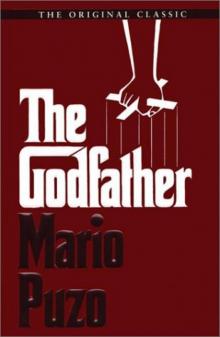 The Godfather
The Godfather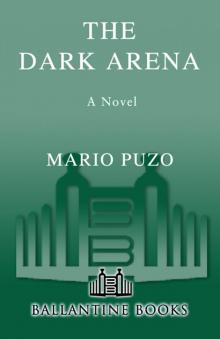 The Dark Arena
The Dark Arena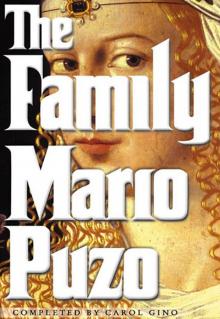 The Family
The Family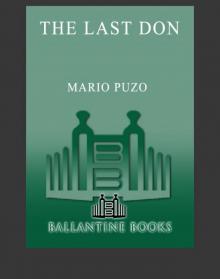 Last Don
Last Don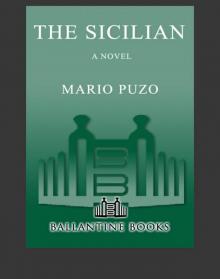 The Sicilian
The Sicilian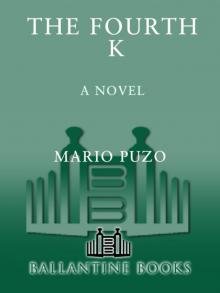 The Fourth K
The Fourth K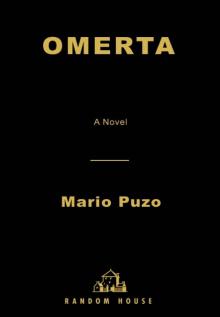 Omerta
Omerta Six Graves to Munich
Six Graves to Munich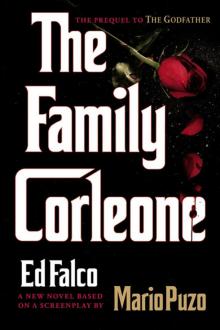 The Family Corleone
The Family Corleone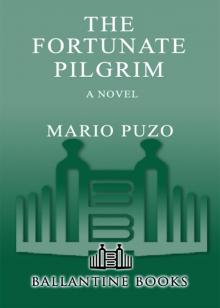 The Fortunate Pilgrim
The Fortunate Pilgrim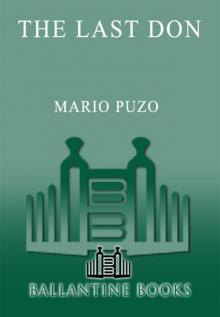 The Last Don
The Last Don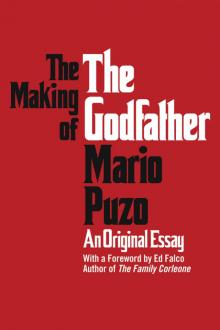 The Making of the Godfather
The Making of the Godfather Fools die
Fools die The Sicilian (v2.0)
The Sicilian (v2.0)